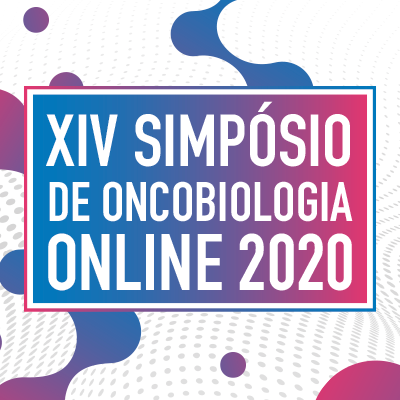Proceedings of Oncobiology Symposiums
Proceedings of XIV Oncobiology Symposium
NEUTROPHIL EXTRACELLULAR TRAPS (NETS) INDUCE PROCOAGULANT PHENOTYPE IN HUMAN BREAST CANCER CELLS
How to cite this paper?
To cite this paper use one of the standards below:
How to cite this paper?
INTRODUCTION AND OBJECTIVES: Neutrophil extracellular traps (NETs) have been associated with several steps of tumor progression, including primary growth and metastasis. We recently demonstrated that NETs drive the pro-metastatic phenotype in human breast cancer cells through the activation of the epithelial-mesenchymal transition (EMT). EMT has associated with the expression of Tissue Factor (TF), a transmembrane protein that initiates the blood coagulation cascade. In this study, we evaluated the ability of isolated NETs in modulating the procoagulant phenotype of human breast cancer cells. MATERIAL AND METHODS: Neutrophils were isolated from the blood of healthy donors and stimulated with PMA to generate NETs. T47D and MCF7 breast cancer cells were starved in serum-free medium and further treated with isolated NETs for 16 hours. Then, samples were generated for real-time PCR, flow cytometry, and plasma coagulation assays. RNA-seq data from breast cancer patients deposited in The Cancer Genome Atlas (TCGA) database were assessed. RESULTS AND CONCLUSION: In vitro analysis showed upregulation of TF gene expression in breast cancer cells treated with NETs. TF expression was confirmed by flow cytometric analysis. Accordingly, the treatment of breast cancer with isolated NETs induced a procoagulant phenotype, as demonstrated by the acceleration of plasma clotting. TCGA analysis revealed a significant positive correlation between TF and neutrophil signature gene expression. Besides, TF gene expression positively correlated with the gene expression of EMT-related proteins, including ZEB1, fibronectin, N-cadherin, and beta-catenin. Our results show that NETs upregulate TF expression in human breast cancer cells. In human patients, TF gene expression correlates with EMT-related proteins. We conclude that TF expression may contribute to the increased tumor cell aggressiveness as a result of the NETs-induced EMT program.
Vanessa Fernandes
Aquiles Mação Junior
Gostaria de saber se vocês pretendem avaliar o impacto das NETs em outras linhagens, derivadas de outros tipos tumorais. Também gostaria de saber se vocês pretendem avaliar as alterações fenotípicas associadas a EMT.
- 1 answer
Thales Nepomuceno
Aquiles Mação Junior
Vocês pretendem avaliar o impacto das NETs em modelos celulares de mama normal , como MCF710A, por exemplo?
- 3 answers
Aquiles Mação Junior
Bom dia Thales!
Incialmente não, a ideia é replicar esse modelo em outras linhas de câncer de mama e, posteriormente, em outros tipos de tumor, como câncer cervical e colorretal.
Thales C. Nepomuceno
Mas você não acredita olhar linhagens não tumorais pode ser informativo no sentido de mecanismos de controle da resposta tumoral?
Aquiles Mação Junior
Sim, excelente idéia. Geralmente fazemos um comparativo entre linhagens tumorais. Avaliar o efeito das NETs em linhagens não tumorais nos daria excelentes dados comparativos. Obrigado pela sugestão.
Anna Beatriz Ribeiro Elias
Aquiles Mação Junior
Vocês já pensaram em pegar neutrófilos de pacientes com câncer de mama e tratar linhagens não tumoaris, para ver se pode ocorrer de algum tipo de alteração?
- 1 answer
Aquiles Mação Junior
Oi Anna, bom dia!
Inicialmente não está nos nossos planos, mas essa ideia de ver se as NETs conseguem transformar uma célula normal em tumoral é bem interessante. Tá anotado aqui!!
- 1 Instituto de Bioquímica Médica Leopoldo de Meis / Universidade Federal do Rio de Janeiro
- 2 Instituto Oswaldo Cruz / Fundação Oswaldo Cruz
- 3 Universidade Federal de Juiz de Fora
- Molecular Biology
Streamline your Scholarly Event
With nearly 200,000 papers published, Galoá empowers scholars to share and discover cutting-edge research through our streamlined and accessible academic publishing platform.
Learn more about our products:
How to cite this proceedings?
This proceedings is identified by a DOI , for use in citations or bibliographic references. Attention: this is not a DOI for the paper and as such cannot be used in Lattes to identify a particular work.
Check the link "How to cite" in the paper's page, to see how to properly cite the paper


Aquiles Mação Junior
Bom dia Vanessa!
Sim! A idéia inicial é expandir para outras linhagens de câncer de mama e, em seguida, avaliar em carcinoma cervical e colorretal. Por enquanto, vamos avaliar somente esse fenótipo pro-coagulante, mas algumas diferenças morfológicas e a capacidade de migração no cancer de mama induzidas pelas NETs já foi mostrado pelo nosso grupo no trabalho "Neutrophil Extracellular Traps (NETs) Promote Pro-Metastatic Phenotype in Human Breast Cancer Cells through Epithelial–Mesenchymal Transition". Agora, com uso de inibidores, vamos seguir tentando identificar as vias que regulam essa super expressão induzida pelas NETs.